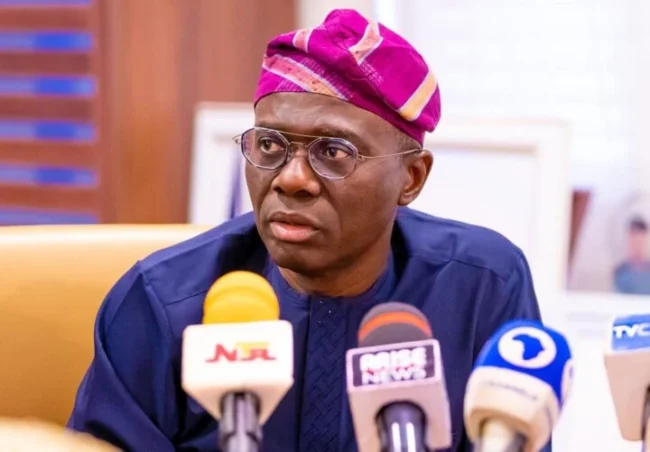Lagos State Governor, Mr Babajide Sanwo-Olu, on Thursday, assured that his administration would continue to be at the forefront of the Climate Change campaign, promoting policies and initiatives towards climate action.
Governor Sanwo-Olu gave the assurance while speaking at the Closing Ceremony of the 10th Lagos International Climate Change Summit themed: “Accelerating Climate Finance and Championing Local Adaptation Initiatives,” held at the Lagos Continental Hotel, Victoria Island, Lagos.
The governor, who was represented at the event by the Deputy Governor, Dr. Kadri Obafemi Hamzat, said that the government must continue to strengthen policy frameworks and regulatory environments to support climate action and remain steadfast in its commitment to inclusivity and equity.
This was just as Governor Sanwo-Olu noted that Climate action must be inclusive, ensuring that marginalized and vulnerable groups were not left behind, saying that women, youths, indigenous peoples, and other underrepresented communities must have a voice in the decision-making processes that affect their lives and livelihoods.
Besides, he said the government must prioritize capacity building and knowledge sharing by empowering local communities with the skills, tools, and knowledge they needed to develop and implement adaptation strategies, which he noted were essential, positing that the skills involved not only technical training but also fostering a culture of innovation and collaboration.
“We must also continue to strengthen policy frameworks and regulatory environments to support climate action and remain steadfast in our commitment to inclusivity and equity.
“Climate action must be inclusive, ensuring that marginalized and vulnerable groups are not left behind. Women, youth, Indigenous peoples, and other underrepresented communities must have a voice in the decision-making processes that affect their lives and livelihoods,” the governor stated.
On the impact of Climate Change, which has not been uniform, Sanwo-Olu noted that the effects were felt most acutely at the local level, saying that it is at such a level that adaptation strategies must be tailored and implemented.
“We have celebrated the ingenuity and resilience of local communities, whose adaptive measures from sustainable agricultural practices to innovative water management systems serve as a powerful example of grassroots climate action,” he said.
Speaking on the theme of the summit, Governor Sanwo-Olu noted that it had explored the multifaceted dimensions of climate finance and local adaptation, recognizing that both were crucial to building resilient communities and sustainable futures, pointing out that discussions on the subject matter had “underscored the necessity of a systemic shift in how we perceive and deploy financial resources for climate action.”
“We have heard from experts who have highlighted innovative financing mechanisms, from green bonds to climate insurance, and the importance of leveraging both public and private sector investments. These discussions have underscored the necessity of a systemic shift in how we perceive and deploy financial resources for climate action,” he said.
Reflecting on the key takeaways and the path forward of the summit, Sanwo-Olu emphasized that the government must continue to advocate for increased and sustained climate finance, maintaining that governments, financial institutions, and international organizations must work collaboratively to bridge the financing gap and ensure that resources were directed toward projects that yield tangible benefits for communities and ecosystems.
Sanwo-Olu, therefore, urged participants at the summit to leave with renewed determination, emphasizing that the work they do today would shape the future of the planet.
“Together we can accelerate climate finance, champion local adaptation initiatives, and create a world that is more resilient, sustainable, and just,” the governor declared.
The State Commissioner for Environment and Water Resources, Mr. Tokunbo Wahab, earlier in his welcome address, stated that the summit serves as a clarion call to action for all stakeholders in the state to think creatively, out of the box, and take proactive measures in protecting the lives and properties of Lagos residents.
Wahab said the summit highlighted the different challenges of climate change in the state, stating the unique geography of the state as it is surrounded by water, and waste management, among others which all present both opportunities and challenges.
“Lagos as a state has its challenges, that is a coaster place surrounded by water, such as the Atlantic Ocean, which means we have to think differently and we have to change our destiny by taking proactive actions,” he said.
ALSO READ THESE TOP STORIES FROM NIGERIAN TRIBUNE
